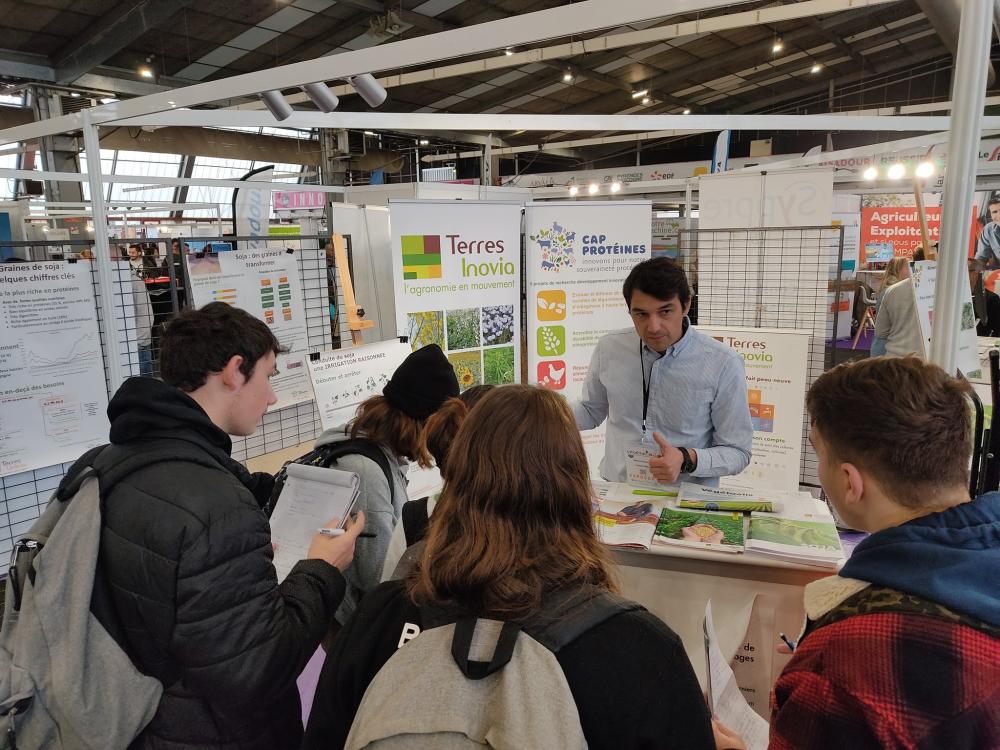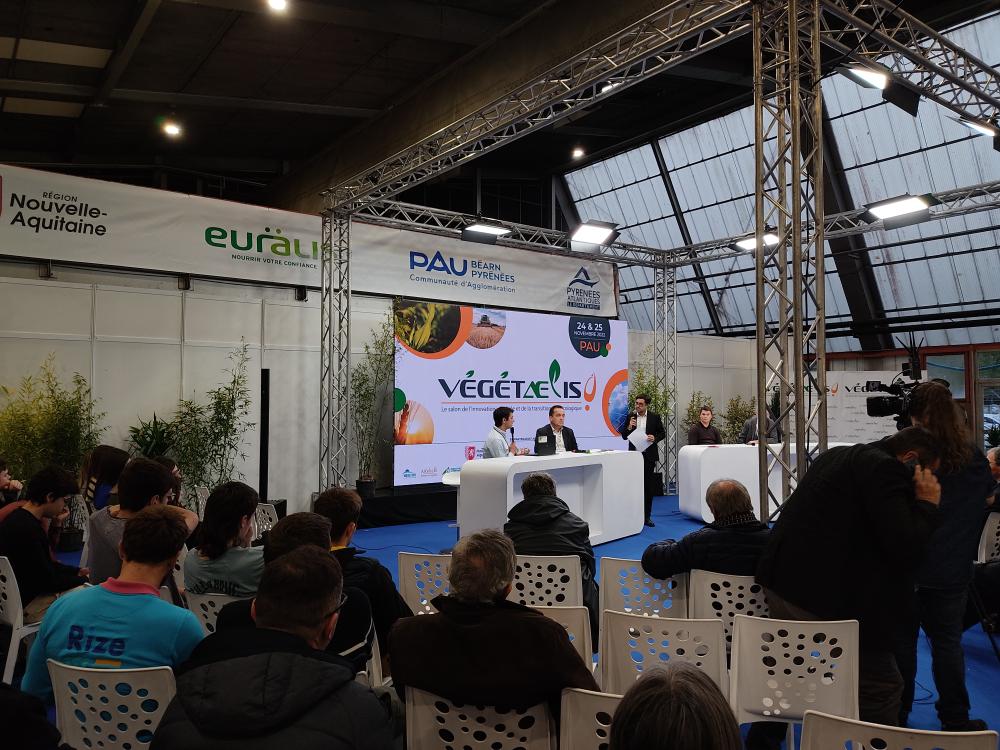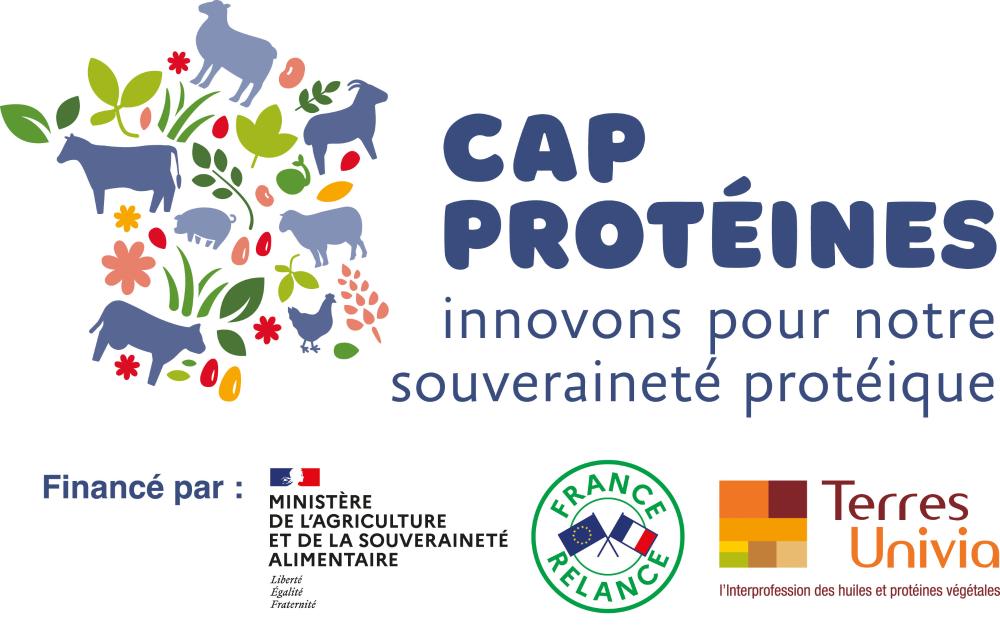Végétaelis: the new exhibition for plant innovation and agroecological transition
Végétaelis: the new exhibition for plant innovation and agroecological transition
On the occasion of the launch of the brand new Végétaelis exhibition in Pau, dedicated to plant innovation and agro-ecological transition, Terres Inovia had a stand on 24 and 25 November 2022. This enabled the technical institute to present some of the results of the Cap Protéines programme. In addition, Matthieu Abella, development engineer, took part in a round table discussion on the theme of the carbon issue.
Pau hosted the first edition of the Végétaelis trade show devoted to plant innovation and agro-ecological transition. While Terres Inovia had a stand in the colours of Cap Protéines, the technical institute also took the floor during a round table on the carbon issue.

Matthieu Abella, Terres Inovia development engineer, took part alongside Gildas Coten (AGPM), Baptiste Cuny (Euralis) and Xavier Thevenot (Syngenta). Here he summarises the exchanges between participants, which he describes as "complementary".

"We debated the 'how' to make a success of the carbon challenge in agriculture. We were all in agreement on the substance: agriculture has many levers to reduce its carbon footprint and to actively contribute to climate change mitigation. It is one of the only activities that can become a carbon sink. Moreover, numerous trials/experimental systems/models show this (e.g. the long-term experimental platforms set up under the Syppre action). Integrating legumes and plant cover into a cropping system, better reasoning out nitrogen fertilisation, simplifying tillage, and making systems more efficient from an environmental point of view (and in particular with regard to the carbon issue by limiting GHG emissions and storing carbon) are some of the solutions. But sometimes, or rather often... at the expense of economic performance.
He continues: "It is therefore necessary to better remunerate farmers for this service to society. There are several possibilities: by remunerating the service (e.g. carbon credits) or by making better use of the products (building up supply chains, opening up specific outlets so that producers can be remunerated for their environmental efforts through better use of their products). Finally, it is essential to support farmers, as these changes often require them to redesign their farming systems, which is not at all easy to do alone..."
Contact : Bernadette Roux, b.roux@terresinovia.fr
